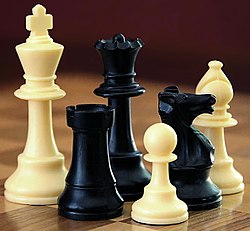An Indian Village’s Unique Strategy to Hold Alcoholism in Check

Thrissur is a city in India, located in the state of Kerala near the Arabian Sea coast. If you travel about ten miles into the surrounding forests, you may come across Marottichal, a village that is home to about 6,000 people. By western standards, Marottichal would probably be best described as quaint — there are shops and schools and everything else you’d expect to see in any viable municipality, but with a deeper sense of community apparent. That wasn’t the case two generations ago, though. Marottichal, like many other of Kerala’s remote villages, had a town-wide problem with alcoholism.
And then, a man named C. Unnikrishnan moved back home.
Unnikrishnan, whose full first name has gone unreported, grew up in Marottichal but left in the early 1970s. Then a teenager, Unnikrishnan had heard about a prodigy named Bobby Fischer and, inspired by the chess master’s success, wanted to learn the game for himself. Unnikrishnan didn’t have to go far; he was able to find a teacher in a nearby village. But he wasn’t planning on returning to his hometown village. Instead, he’d later move to Bangalore in central India, about eight hours by car from Thrissur, where he made a life for himself. But it wasn’t meant to be. According to the Hindustan Times, Unnikrishnan returned to Marottichal in the late 1980s or early 1990s and opened a tea shop. But tea wasn’t his reasons for returning — moonshine was.
As reported by The News Minute, in the 1970s and 1980s, “illicit liquor brewing was a common practice in Marottichal, with most men in the village indulging in the work.” Alcoholism ran unchecked in the village with no end in sight. Unnikrishnan heard about the social epidemic gripping his home and decided to tackle the issue one person at a time. As the BBC reported, at his new tea shop, “he began teaching customers to play chess as a healthier way to pass the time.” And the love of chess he instilled in those first few people spread.
Chess, in a sense, became the town’s new addiction, supplanting alcohol. “Miraculously,” the BBC continued, “the game’s popularity flourished while drinking and gambling declined. The village’s enthusiasm for the ancient pastime [ . .. ] has now become so great that Unnikrishnan estimates one person in every Marottichal household knows how to play.” And that may be an underestimate; according to the Hindu, “everyone between the ages of 10 and 50 in the village is a player.” Today, Marottichal is known locally as the chess-playing village, but it perhaps should be known as the mostly sober one. Very few of its residents struggle with alcoholism and Unnikrishnan is often hailed as a local hero.
Bonus fact: Government bans on drinking and drug use can be effective but often lead to black market solutions, as seen throughout the history of Prohibition (and to a different extent, the War on Drugs) in the United States. The same is true in India, and at times, it goes beyond moonshine. In 2010, the Scotsman reported that those in search of a high had found a new way to get there — scorpion venom. For a price, some drug entrepreneurs were “offering clients the chance to get their hands or feet stung by scorpions carried in small boxes.” The venom — which is highly addictive but not lethal — causes “an illusionary floating feeling that lasts six to eight hours.” And yes, the whole point is to get around the region’s drug laws. As one officer told the Scotsman, “because of our successful drives against the sellers and addicts of alcohol, opium, cough syrup and heroin in urban areas, young people are flocking on the highways to try the new craze of scorpion stings.”
From the Archives: Half Baked: A really dumb law which probably didn’t stop drug use at all.
